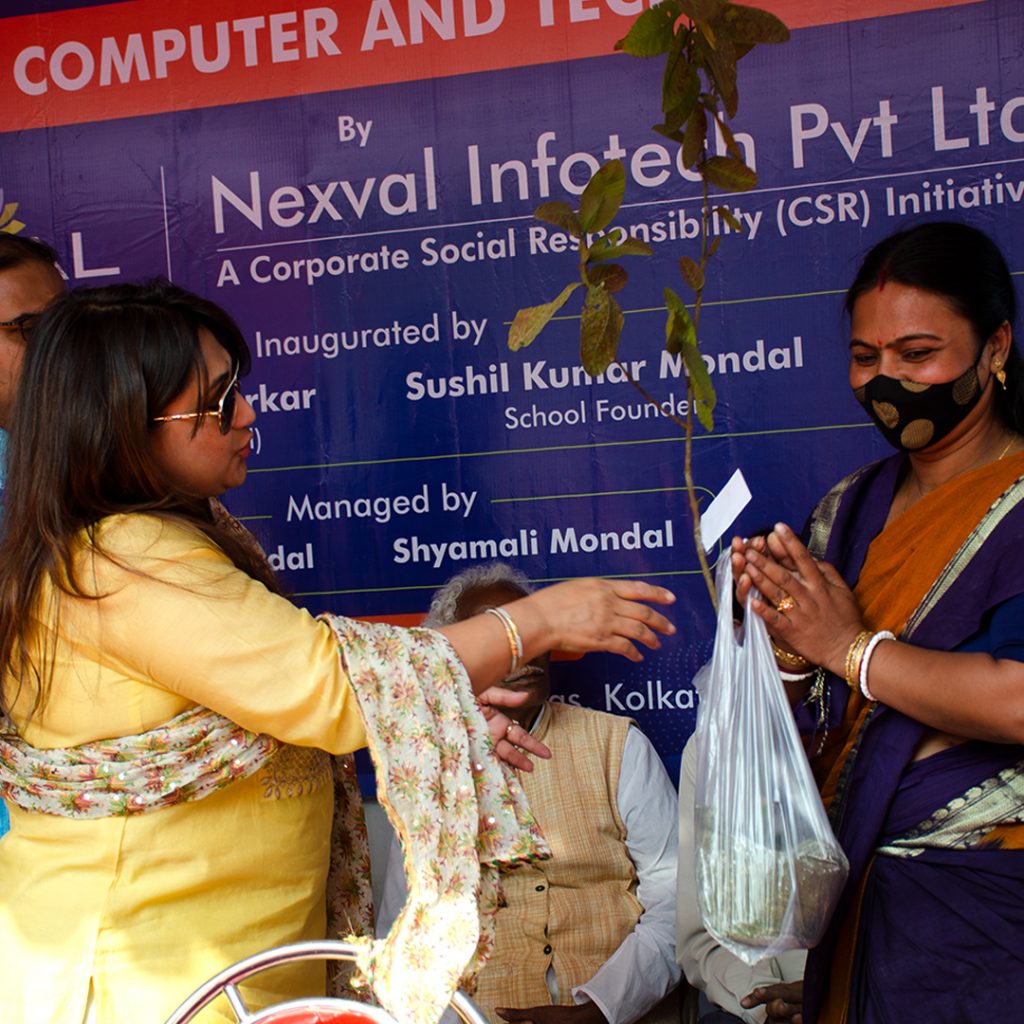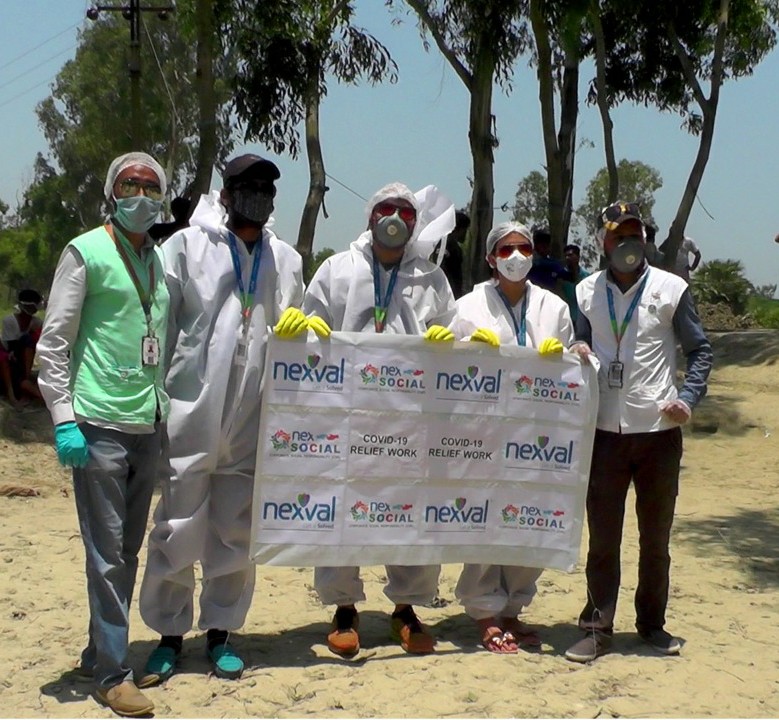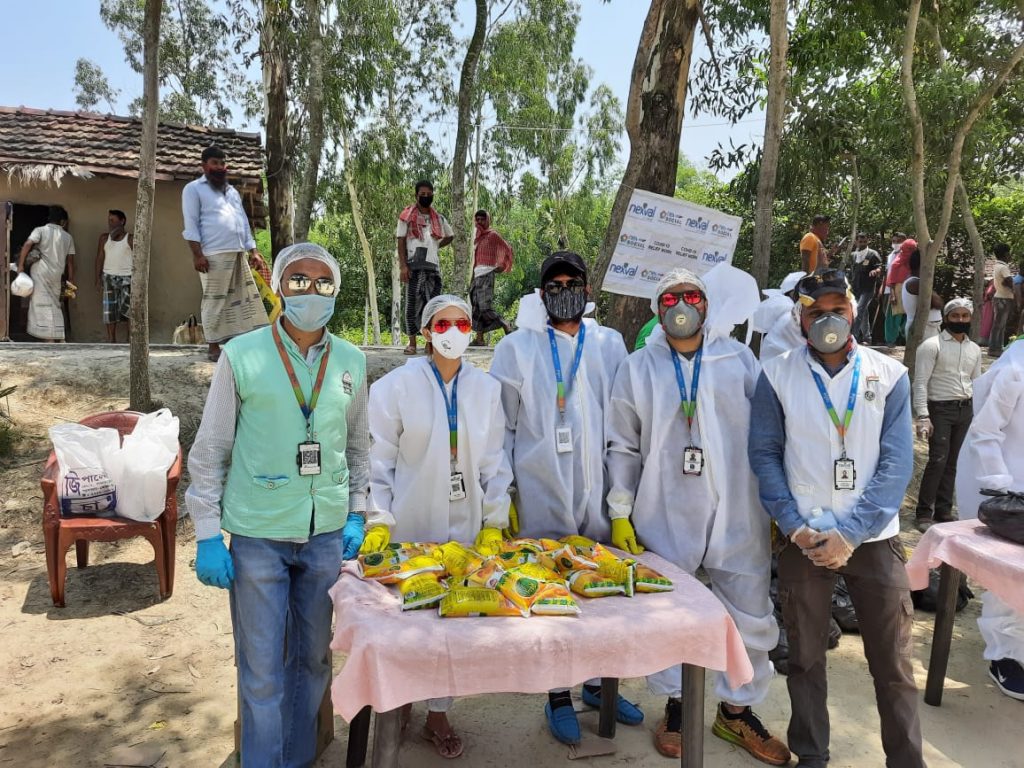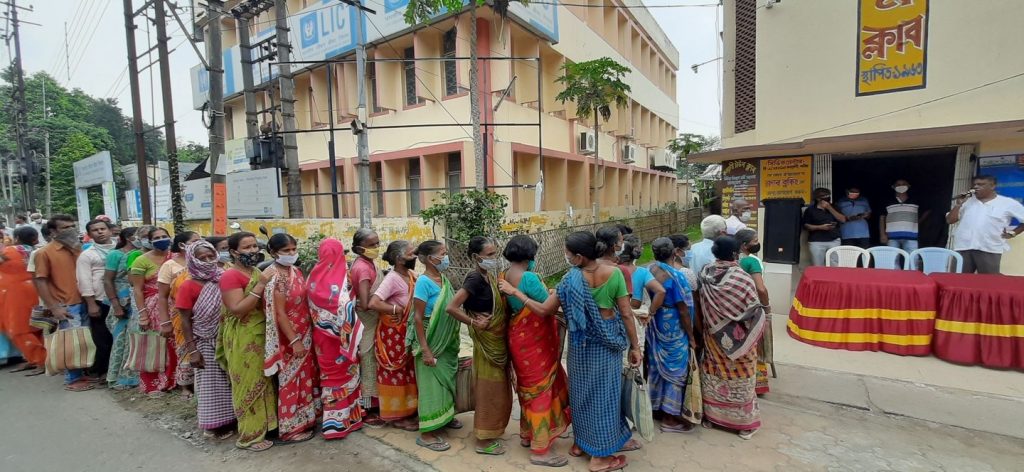| Title | Corporate Social Responsibility Policy |
||
|---|---|---|---|
| Classification: | General | ||
| Author | Satyajit Roy Chowdhury | ||
| Reviewer (suitability and adequacy) | Finance Manager | ||
| Approver (suitability and adequacy) | Board of Directors | ||
| Policy/Document Owner | Human Resource Manager | ||
| Current Version | 1.0 | ||
| Doc. No. | NEXV/HR/POL/051 | ||
| First Document Release Date | 20th April 2020 | ||
| Modification History: | |||
| S. No.: | Description of Change | Date of Change | Version No. |
| 1 | |||
| 2 | |||
| 3 | |||



































Background
The Ministry of Corporate Affairs notified section 135 and Schedule VII of the Companies Act 2013, as amended from time to time (hereby referred to as the 'Act') as well as the provisions of the Companies (Corporate Social Responsibility Policy) Rules, 2014, as amended from time to time (hereby referred to as the 'Rules'), to come into
effect from 1st April 2014.
Pursuant thereto, every Company which either, has a net worth of Rs. 500 crore or more, or a turnover of Rs. 1,000 crore or more, or net profit of Rs. 5 crore or more, during the immediately preceding financial year, needs to spend at least 2% of its average net profit for the immediately preceding three financial years on corporate
social responsibility (“CSR”) activities (for the purpose of calculating 2% of average net profits, net profits shall not include profits arising from branches outside India if and when we set up branches out of India, whether operated as a separate company or otherwise, and any dividend received from other companies in India, which are covered
under and complying with the provisions of section 135 of the Act). The CSR activities must be with respect to any of the activities mentioned in Schedule VII of the Act. As per the Act and the Rules an eligible company is required to
constitute a CSR Committee and formulate a CSR Policy and upload the same on the company’s website. To formulate and monitor the CSR policy of the Company, a CSR Committee of the Board of Directors of the Company (“Committee”) has been constituted.
Company Philosophy for CSR Policy
Nexval Infotech Private Limited (“Company”), recognizes the impact it has on communities in which it operates and believes that it has a tremendous opportunity to change lives of these communities and aims to be a trusted partner contributing to the social, economic and environmental progress of India.
CSR Activities:
Pursuant to Schedule VII of the Act, the Committee has approved the following activities as “CSR Activities” to be undertake under the CSR policy of the Company. The Board of Directors has reviewed the said activities and has expressed its consent to the Committee to pursue the said activities under CSR policy of the Company under
applicable laws.
Approved CSR Activities:
i. Eradicating hunger, poverty and malnutrition, promoting health care including preventive health care and sanitation including contribution to the Swachh Bharat Kosh set-up by the Central Government for the promotion of sanitation, and making available safe drinking water;
ii. Promoting education, including special education and employment enhancing vocation skills especially among children, women, elderly and the differently abled and
livelihood enhancement projects;
iii. Promoting gender equality, empowering women, setting up homes and hostels for women and orphans; setting up old age homes, day care centres and such other facilities for senior citizens and measures for reducing inequalities faced by socially and economically backward groups.
iv. Ensuring environmental sustainability, ecological balance, protection of flora and fauna, animal welfare, agroforestry, conservation of natural resources and maintaining quality of soil, air and water including contribution to the Clean Ganga Fund set-up by the Central Government for rejuvenation of river Ganga;
v. Protection of national heritage, art and culture including restoration of buildings and sites of historical importance and works of art, setting up public libraries, promotion and development of traditional art and handicrafts;
vi. Measures for the benefit of armed forces veterans, war widows and their dependants including Central Armed Police Forces (CAPF) and Central Para Military Forces (CPMF) veterans, and their dependents including widows;
vii. Training to promote rural sports, nationally recognised sports, paralympic sports and olympic sports;
viii. Contribution to the prime minister’s national relief fund, or Prime Minister’s Citizen Assistance and Relief in Emergency Situations Fund (PM CARES Fund) or any other fund set up by the central govt. for socio economic development and relief and welfare of the schedule caste, tribes, other backward classes, minorities and women;
ix. Contribution to incubators or research and development projects in the field of science, technology, engineering and medicine, funded by the Central Government or State Government or Public Sector Undertaking or any agency of the Central Government or State Government; and contributions to public funded Universities; Indian Institute of Technology (IITs); National Laboratories and autonomous bodies established under Department of Atomic Energy (DAE); Department of Biotechnology (DBT); Department of Science and Technology (DST); Department of Pharmaceuticals; Ministry of Ayurveda, Yoga and Naturopathy, Unani, Siddha and Homoeopathy (AYUSH); Ministry of Electronics and Information Technology and other bodies, namely Defense Research and Development Organisation (DRDO); Indian Council of Agricultural Research (ICAR); Indian Council of Medical Research (ICMR) and Council of Scientific and Industrial Research (CSIR), engaged in conducting research in science, technology, engineering and medicine aimed at promoting Sustainable Development Goals (SDGs).;
x. Rural Development Projects;
xi. Slum Area Development i.e. an area declared by the Central Government or any State Government or any other competent authority under any law for the time being in force.
xii. Disaster Management, including relief, rehabilitation and reconstruction activities;
Budget for CSR Activity& CSR Expenses:
The Company shall allocate the budget for CSR Activities. The Company may allocate more fund/amount than the minimum amount prescribed under section 135 of the Act, for the CSR Activities for any financial year. The Committee shall calculate the estimated total fund for the CSR Activities and recommend the same to the Board for
the approval. The Board of Directors shall approve the total fund to be utilized for CSR Activity for each financial year.
Identification of activities/projects:
Out of approved CSR Activities, the Committee shall decide which activity/project should be given priority. While arriving at the decision of the activity to be undertaken, the Committee shall analyse the basic need of the community/ area in which the Company operates or at the place where its registered office is situated. The Committee shall record its findings and prioritise the CSR Activities accordingly.
Implementation process:
After prioritizing the CSR Activity, the Committee shall finalise the detailed implementation project/programme, including planning for expenses against the total budget allocated for CSR Activities for a financial year in accordance with applicable laws.
Organisational Responsibility:
The CSR Activities shall be implemented by the Company. At an organisational level for implementation of agreed CSR Activity, the Committee may constitute an implementation team or authorise any of the departments of the Company to implement the identified CSR Activity. The team or respective department so authorised, shall
undertake the implementation of the identified CSR Activity from time to time, on behalf of the Committee and submit a report to the Committee regarding the progress of the activity implementation, on a quarterly basis. The respective department or implementation team is responsible for reporting of any irregularity to the Committee
on immediate basis.
Monitoring by the Board:
The Board of Directors shall constantly monitor the implementation of the CSR Activities in accordance with the provisions of the Act and the Rules. The Committee shall place a progress report, including details of expenses, implementation, timelines, before the Board of Directors on quarterly basis. The Board shall review the same and
suggest recommendations, if any, to the Committee with regard to implementation process.
Compliance and Reporting to Board:
The Committee is responsible to undertake CSR activities as per the approved CSR Policy. Apart from quarterly reporting to the Board about the implementation of CSR Activity, a detailed annual report on the CSR Activities shall be prepared and be placed before the Board of Directors for its consideration containing the particulars as per the
provisions under the Rules, including but not limited to implementation schedule, total budget allocated, actual expenses incur, surplus arising, if any, result achieved, further work to do in the concern CSR Activity, recommendation for the CSR Activities for next year etc. Further the Board shall disclose the CSR Activity undertaken in a financial year in its report, in accordance with the provisions of the Act and the Rules.
Management Commitment:
Our Board of Directors, our Management and all of our employees subscribe to the philosophy of compassionate care. We believe and act on an ethos of generosity and compassion, characterized by a willingness to build a society that works for everyone. This is the cornerstone of our CSR policy.
Action Plan:
The Committee shall formulate an action plan in pursuance of the CSR Policy which shall include the list of CSR projects or programmes that are approved to be undertaken in areas or subjects specified in Schedule VII, the manner of execution of such projects or programmes, the modalities of utilisation of funds and implementation
schedule for the projects or programmes, monitoring and reporting mechanism for the projects or programme, and details of need and impact assessment, if any, for the projects undertaken by the Company. The Board shall have the power to make alterations to the action plan based on the recommendation of the Committee.
Amendments to this Policy:
Board of Directors shall have the power to revise/modify /amend this Policy from time to time, as it may think fit, based on recommendations of the Committee. In the event of any conflict between the provisions of this Policy and applicable statutes, the applicable statutes will prevail and be applicable.

